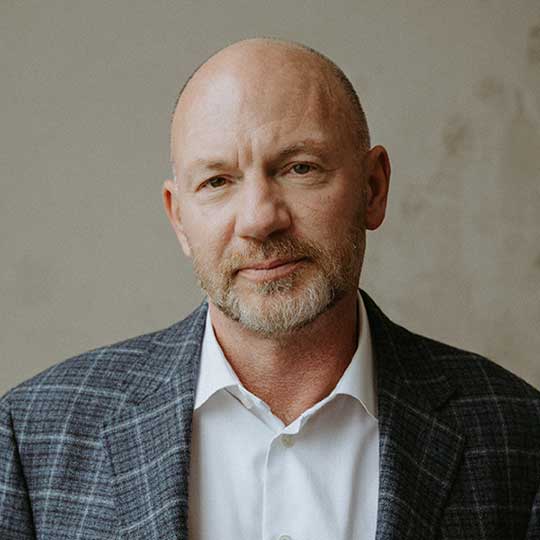Feb 07, 2025 in News Legal News
Legal News: No Informed Consent? That Could Be Negligence

In a landmark decision following a 26-day trial, the Ontario Court of Appeal held three doctors liable for failing to obtain proper informed consent. The court allowed the $8.5 million award for damages, as well as the trial court’s $3 million costs order, especially since the victim and his family had previously offered to settle for less.
Our medical malpractice lawyers explain the facts of the cases, the court’s reasoning, and the significance of this case for victims of medical negligence.
Facts of the Case
In May 2010, Mr. Denman suffered a stroke or seizure and was quickly transported by ambulance to Southlake Regional Health Centre. He was then transferred to Saint Michael’s Hospital, where he was diagnosed with an arteriovenous malformation (AVM) and a related aneurysm. The following day, he underwent treatment that resolved the aneurysm but left the AVM untreated. After determining that the AVM was stable, doctors discharged Mr. Denman a month later.
Mr. Denman’s case was reviewed by the Gamma Knife unit at Toronto Western Hospital (TWH) in October 2010, and he underwent Gamma Knife stereotactic radiosurgery in March 2011. The procedure, though low-risk and non-invasive, did not resolve the AVM. However, Mr. Denman’s condition remained stable, and after experiencing only a few treatable headaches, he returned to work September 2012.
At this time Mr. Denman was the sole breadwinner of the family. One of his two daughters had a disability, and Mr. and Mrs. Denman attempting to get a financial plan together for her.
Read More - Is an E-Bike Considered a Motor Vehicle in Ontario?
Background to the Issue of Informed Consent
A multidisciplinary AVM team at TWH met in May 2014, to review Mr. Denman’s case and develop a new treatment plan aimed at curing the AVM. The plan included a series of embolizations, followed by a potential microsurgical resection. This course of action carried significant risks, as Mr. Denman’s AVM was assigned a 4 out of 5 on the Spetzler-Martin Grading Scale, indicating high difficulty and risk in surgical treatment.
In June 2014, Dr. ter Brugge met with Mr. Denman to discuss the risks associated with the planned embolization, informing him of a 3 to 5 percent risk of stroke or death.
Mr. Denman consented to the procedure after being provided with this information. He met with Dr. ter Brugge again in August 2014, to prepare for the upcoming embolization, where the risks were reiterated.
During further consultations, Dr. Pereira explained to Mr. Denman that his untreated AVM carried an annual rupture risk of 2 to 4 percent, with a lifetime risk of 50 to 60 percent. He contrasted this with the 10 to 15 percent risk associated with the proposed treatment, including a 3 to 5 percent chance of a severe complication.
Dr. Radovanovic also informed Mr. Denman that the combined procedure risked deficits ranging from minor to disabling.
On June 23, 2015, Dr. Pereira performed Mr. Denman’s third embolization, after the first two were only partially successful.
Complications arose post-operatively, leading to a brain bleed. This emergency required Dr. Radovanovic to perform additional surgery to remove the AVM and stop the bleeding.
As a result of these complications, Mr. Denman was left with dense hemiplegia on his left side, rendering him fully dependent on care and only able to communicate through writing and gestures.
| See How We’re Raising the Bar for Care and Compensation This 151-page decision highlights the expertise of our medical malpractice team |
Issues Central to the Trial in Denvman v. Radovanovic
The dispute centred on three key questions:
- What information should have been disclosed to Mr. Denman
- What was actually disclosed to him
- Whether Mr. Denman—or any reasonable person in his situation—would have made a different decision had full disclosure been provided
Additionally, the parties contested which of the involved doctors should be held liable if it was determined that informed consent had not been properly obtained. The appellants (the doctors) contended that, if any liability existed, it should be limited to Dr. Pereira, the physician who performed the procedure that ultimately caused Mr. Denman’s injury.
The Court’s Analysis of the Law on Informed Consent
The central question in this appeal is not whether Mr. Denman consented to the procedures he underwent–which he did. Instead, the focus here is on whether the consent Mr. Denman provided was informed.
It is a well-established legal principle that, before proceeding with elective treatment, a physician must provide the patient with adequate information, even if the patient does not specifically ask for it.
This includes:
- Explaining the nature of the proposed treatment and any material, special, or unusual risks associated with it (Hollis v. Dow Corning Corp)
- Inform the patient of the comparative risks and benefits of other options when more than one viable treatment option exists
Justice Rouleau added, “The extent to which a doctor must disclose and discuss alternative treatments will depend upon what has been described as “a myriad of factual circumstances, [in Van Dyke v. Grey Bruce Regional Health Centre].”
Requirements for Demonstrating Lack of Informed Consent
For a patient to successfully claim a lack of informed consent, they must not only prove that the information they received was insufficient but also establish causation.
This requires a subjective and modified objective test (Bollman v. Soenen):
- Demonstrating that they would not have undergone the procedure if they had been fully informed; and
- That a reasonable person in their position would have made the same decision if given adequate information.
“Neither Mr. Denman Nor a Reasonable Person in His Circumstances Would Have Elected to Proceed”
On appeal, the appellants claimed that the trial judge did not adequately consider Mr. Denman’s personal circumstances when applying the informed consent test. They emphasized that Mr. Denman was eager to resolve his AVM to avoid the risk of a spontaneous rupture while travelling.
Moreover, they argued that the trial judge’s conclusion—that Mr. Denman would have delayed treatment until his retirement, which was 11 years away—was unsupported by the evidence given his desire to travel without fear.
Justice Rouleau disagreed, noting that the trial judge did consider Mr. Denman’s personal circumstances when applying the test for informed consent.
At the time the treatment plan was proposed, Mr. Denman was in good health and asymptomatic, had resumed travelling and working, with his employer willing to accommodate his needs, even in a different role. He was also the primary breadwinner, 11 years away from retirement, with two daughters still at home, one of whom had a disability, and he was not inclined to take risks.
Considering this context, which the trial judge properly evaluated, Mr. Denman or any reasonable person in his circumstances would have weighed the relative risks and made an informed decision about whether to treat his AVM immediately or defer treatment to a later time.
Duty of Disclosure Not Just Limited to Physician Who Carried Out the Procedure
The court also disagreed with the appellants' arguments that, as a matter of established law, only the physician who performs the procedure is responsible for obtaining informed consent.
Justice Roueau noted that none of the established precedents “state that only the physician actually administering the treatment can be found liable. Nor am I aware of a principled basis for saying so.”
In modern medical practice, treatment often involves a team of doctors working together. Section 13 of the Health Care Consent Act (HCCA) acknowledges this, allowing one health practitioner to propose a treatment plan on behalf of all involved and to obtain the necessary consent or refusal. It reflects the evolving nature of medical treatment, where multiple physicians may share responsibility for informing the patient.
A physician who is not directly performing a procedure may still have a duty of disclosure, depending on the circumstances. Whether liability arises in such situations will ultimately depend on the issue of causation.
In this particular case, Dr. ter Brugge, who participated in the multidisciplinary AVM conference in May 2014, had a role in forming the joint recommendation provided to Mr. Denman. Moreover, Dr. Pereira, who performed the actual embolizations, was not present at the conference.
Furthermore, in January 2015, both Dr. Radovanovic and Dr. Pereira met with Mr. and Mrs. Denman to recommend a third embolization followed by a surgical resection. During this meeting, both doctors provided Mr. Denman with information about the risks involved in the combined procedure.
However, the information they shared was insufficient for Mr. Denman to give truly informed consent. Similar to the information provided by Dr. ter Brugge, what was conveyed by Dr. Radovanovic and Dr. Pereira was not only inadequate but also misleading and inaccurate, the court found.
| More reading you might like |
Court Upholds $8.5 Million Award for Lack of Informed Consent
The court upheld the trial court’s $8.5 million damages award. Additionally, the court refused to grant leave to appeal the trial judge’s costs order, which amounted to $3 million.
The appellants' arguments that the costs were unjustified and based on irrelevant factors were rejected. The court found that the trial judge’s decision on costs was reasonable and proportionate, considering the complexity of the case, the significance of the issues, and the work involved in securing the trial's outcome.
The award was also consistent with Rule 49 of the Rules of Civil Procedure, given that the respondents had bettered their settlement offer by $2 million.
Protecting Your Rights in Medical Negligence Cases With Malpractice Lawyers
Navigating a medical malpractice claim can be complex and overwhelming, but you don't have to do it alone. At Neinstein Personal Injury Lawyers, our medical malpractice lawyers are dedicated to fighting for the justice and compensation you deserve.
Schedule a complimentary consultation with a medical malpractice lawyer today to understand your options, and find out how we can ensure you receive the best medical treatment and the compensation you are entitled to.
Category Selector
Select a category relevant to you.
- Social Host Liability
- Tort
- Spinal Injury
- Road Safety
- Slip and Fall Claims
- Snowmobile Accident
- Product Liability
- Rail Accidents
- Recalls
- News
- Nursing Home Negligence
- Personal Injury
- Physical and Psychological Injuries
- Negligent Supervision
- Neinstein in the Community
- Medical Malpractice
- Motorcycle Accidents
- Long Term Disability
- Chronic Pain
- COVID-19
- Dog Bites Claims
- Events
- General
- Homeowner Liability
- JUUL & Vaping
- JUUL Vaping Lawsuit
- Lawyer Profile
- Legal News
- Legal Representation
- Liability
- Long-term Care
- Blogs
- Boating Accident
- Brain Injury
- Car Accident
- Accident Benefits Claims
- Auto Insurance
- Bicycle Accidents
- Water Accidents
- Wrongful Death
- In the Community
Area of Expertise
Negligence
Our practice helps victims who have been injured as a result of negligence. We carefully investigate the circumstances surrounding the incident to protect your rights. We vigorously advocate in court to ensure you are compensated fully for the injuries, pain and suffering you have experienced.
More Posts Legal SupportBook A Free Consultation
We will not charge you unless your case is successful.
At Neinstein we have been advocating for injured victims for over 55 years. Our committed and compassionate team will do everything necessary to help you and your family find solutions to the new challenges that arise from serious injuries.
Our team will ensure you access the proper healthcare support to aid in your recovery. While you focus on your rehabilitation, we will thoroughly investigate your case and guide you through the litigation process so we can achieve the maximum compensation that you deserve.

